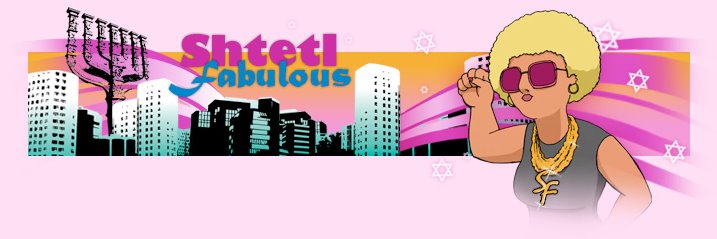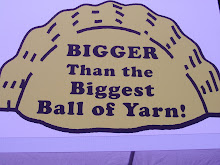In addition to my goal of completing the New York Times crossword puzzle without cheating or giving up and moving over to the Style Section, one of my life's ambitions is to be trilingual in Hebrew, English and Spanish.
Apparently, I'm not alone in making this resolution to shed my shameful American monolingualism - the good folks over at Stuff White People Like listed "Promising to Learn a New Language," at #115. While SWPL asserts this compulsion stems from some white man's burden or cultural imperialism, I think it's much more simple than that. Eavesdropping (OK, and maybe a little guilt).
Who hasn't been at Disneyland or the mall or a subway car and wished he/she could understand whatever the people across the way were saying? Or wanted to talk mad shit about those same people without being understood? It would be MUCH easier if you and a friend or two could mutually speak a non-English language.
So why the need to speak two additional languages? Again, very simple. Spanish is perfect for the first application. Many other people speak it and being fluent would give me greater entree in many of life's venues - restaurants, the entire South and Central American continents and literally my own backyard. Besides, it's pretty simple to learn and I'm from Arizona where Spanish is a first language for a growing number of people.
On the other hand, Hebrew is perfect for my second eavesdropping raison-d'etre. Outside of Israel, certain sections of Los Angeles and the Upper West Side, not too many people speak it. Compared to the millions fluent in Mandarin, Hindi or Spanish for that matter, Hebrew speakers are pretty sparse. Plus, it's way easier to learn than my ancestral language of Hungarian and it makes those Sunday school classes seem less wasteful.
Unfortunately, these dual aspirations don't come with an instruction manual, community college courses are time-consuming and despite Michael Phelps's endorsement, my fluency might have evolved beyond Rosetta Stone. So what's an aspiring woman of the world to do?
One option is to watch copious television or movies in said language. But telenovelas and depressing Israeli movies don't really help with verb conjugation and the past participle. Mostly, I try to talk to strangers or the near-strangers in my office who speak either Hebrew or Spanish (or in one case, both). Native speakers are the best teachers and I'm generally able to coerce them to forgive my mistakes using my natural charm. It's a great way to make friends, though I recommend a little caution.
It might take me a while to achieve my goal, but I subscribe to the belief that the longer the to-do list, the longer God lets you live. Actually, I'm counting on that axiom, in any language.
Thursday, November 20, 2008
Subscribe to:
Post Comments (Atom)


2 comments:
The toughest thing for me about learning languages, or improving on those I know at this age is inhibition. I understand enough Russian from what I hear my husband use with the kids, but get me to speak it to my mother-in-law? I freeze up and revert to a mumbled, "Da . . . "
I do speak Hebrew well-ish and try to use it in the local stores as much as I can.
Hatzlacha!
I find it's all about how much you use the language. My Hebrew used to be MUCH better, but I don't go to Israel for long enough periods of time anymore. When I was there in school for a year I was more fluent. I do try to use it a little with the Israeli shop owners in my neighborhood, but it's not the same.
the longer the to-do list, the longer God lets you live.
Love that line!
Post a Comment